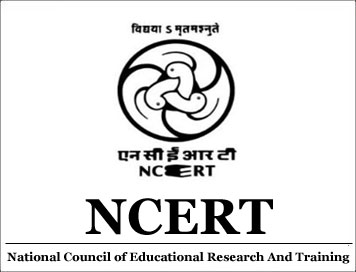(Download) NCERT Revised syllabus Of History (Class 11 to 12 )
Disclaimer: This website is NOT associated with CBSE, for official website of CBSE visit - www.cbse.gov.in
(Download) NCERT Revised syllabus Of History (Class 11 to 12 )
Rationale
These classes will introduce students to the idea that historical knowledge develops through debates and that sources need to be carefully read and interpreted. As the learners have been introduced to chronologically ordered histories of India in Classes VI to VIII, these histories will not be repeated within the same format in Classes XI and XII. Instead, the focus would be on certain select themes, which will be examined in some depth.
Through a focus on a series of critical historical issues and debates (Class XI) or on a range of important historical sources (Class XII), the students would be introduced to a set of important historical events and processes. A discussion of these themes, it is hoped, would allow students not only to know about these events and processes, but also to discover the excitement of doing history.
Objectives
-
The effort in these senior secondary classes would be to emphasise to students that history is a critical discipline, a process of enquiry, a way of knowing about the past, rather than just a collection of facts. The syllabus would help them understand the process through which historians write history, by choosing and assembling different types of evidence, and by reading their sources critically. They will appreciate how historians follow the trails that lead to the past, and how historical knowledge develops.
-
The syllabus would also enable students to relate/compare developments in different situations, analyse connection between similar processes located in different time periods, and discover the relationship between different methods of social enquiry within different social sciences.
-
The syllabus in Class XI is organised around some major themes in world history. The themes ave been selected so as to (i) focus on some important developments in different spheres — political, social, cultural and economic, (ii) study not only the grand narratives of development — urbanisation, industrialisation and modernisation — but also to know about the processes of displacements and marginalisation. Through the study of these themes students will acquire a sense of the wider historical processes as well as an idea of the specific debates around them.
-
The treatment of each theme in Class XI would include (a) a broad picture of the theme under discussion, (b) a more detailed focus on one region of study, (c) an introduction to a critical debate associated with the issue.
-
In Class XII the focus will shift to a detailed study of some themes in Ancient, Medieval and Modern Indian history. The objective would be to study a set of these themes in some detail and depth rather than survey the entire chronological span of Indian history. In this sense the course will build on the knowledge that the students have acquired in the earlier classes.
-
Each theme in Class XII will also introduce the student to one type of source for the study of history. Through such a study students would begin to see what different types of sources can reveal and what they cannot tell. They would come to know how historians analyse these sources, the problems and difficulties of interpreting each type of source, and the way a larger picture of an event, a historical process, or a historical figure, is built by looking at different types of sources.
-
Each theme for Class XII will be organised around four subheads: (a) a detailed overview of the events, issues and processes under discussion, (b) a summary of the present state of research on the theme, (c) an account of how knowledge about the theme has been acquired, (d) an excerpt from a primary source related to the theme, explaining how it has been used by historians.
-
While the themes in both these classes (XI and XII) are arranged in a broad chronological sequence, there are overlaps between them. This is intended to convey a sense that chronological divides and periodisation do not always operate in a neat fashion.
-
In the textbooks each theme would be located in a specific time and place, but these discussions would be situated within a wider context by (a) plotting the specific event within time-lines, (b) discussing the particular event or process in relation to developments in other places and other times.
CLASS XI: THEMES IN WORLD HISTORY
Themes |
Objectives |
I: Early Societies1. From the Beginning of Time Focus: Africa, Europe till 15000 BC (a) Views on the origin of human beings. Debate on present-day hunter-gatherer societies. 2. Early Cities Focus: Iraq, 3rd millennium BC (a) Growth of towns. Debate on uses of writing II: Empires3. An Empire across Three Continents Focus: Roman Empire, 27 BC to AD 600. (a) Political evolution Debate on the institution of slavery. |
|
